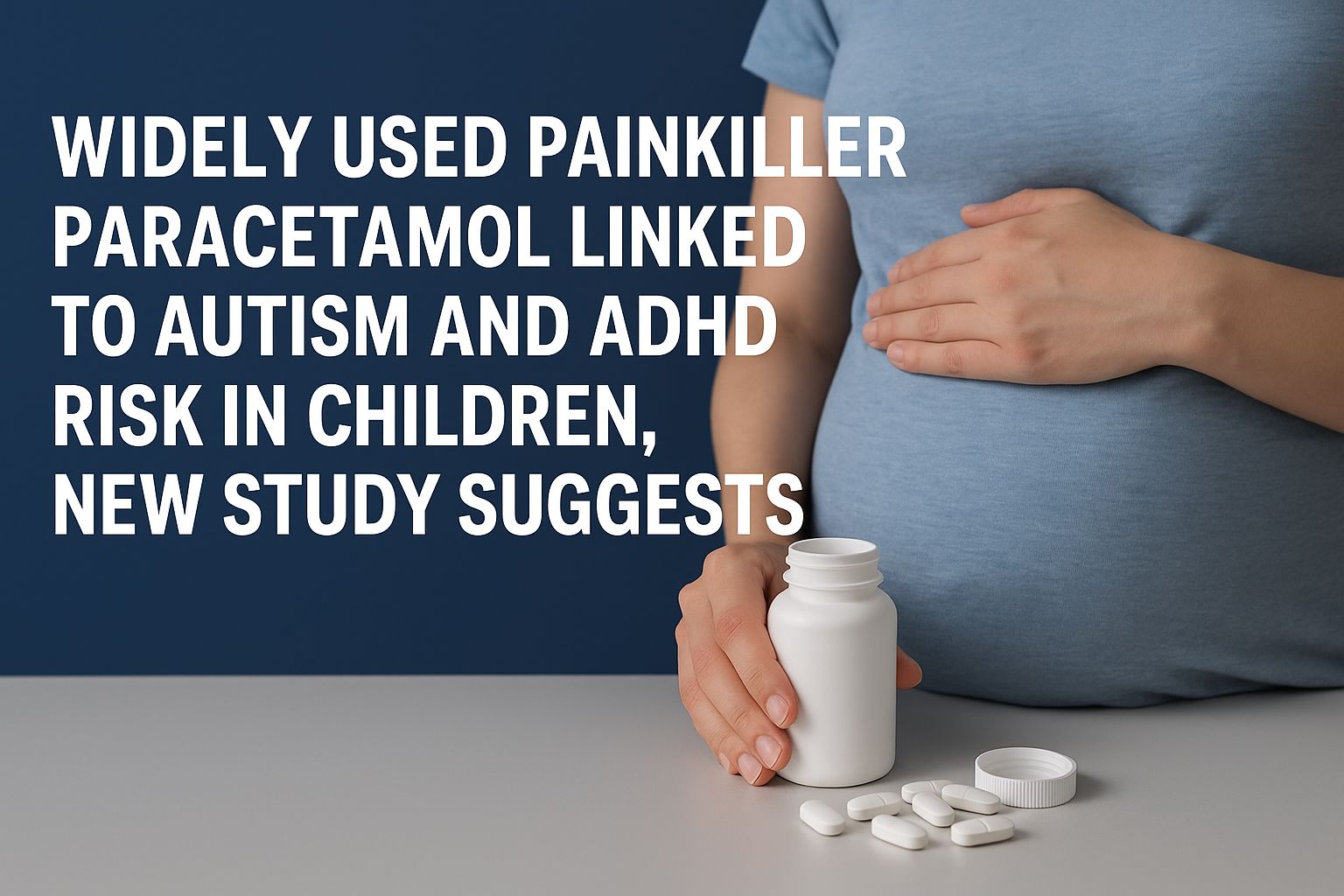
.
Acetaminophen, more popularly known as paracetamol (Common brand names include Tylenol, Excedrin, Calpol, and Panadol.), may increase the risk of autism spectrum disorder (ASD) and attention deficit hyperactivity disorder (ADHD) in children when mothers use the drug during pregnancy, according to a new study.
Paracetamol is one of the most commonly used painkillers and fever-reducing medicine worldwide, valued for its fever-reducing and analgesic effects. It is generally considered safer than alternatives like aspirin or ibuprofen, especially during pregnancy. However, growing research suggests its use is not without risks, particularly for the developing fetus.
The Study: A Comprehensive Review
The research, conducted by scientists from Mount Sinai Hospital and Harvard’s T.H. Chan School of Public Health, analysed data from over 100,000 participants across 46 previous studies. To ensure rigor, the team applied the Navigation Guide Systematic Review methodology, a gold-standard framework used for synthesising environmental health data.
Researchers examined when paracetamol was taken—during the first, second, or third trimester, or throughout pregnancy—and compared this information with mothers’ medical records and children’s long-term health outcomes.
The findings, published in BMC Environmental Health earlier this month, revealed that higher-quality studies more consistently found a link between prenatal paracetamol exposure and elevated risks of autism and ADHD. The authors warned that even a small increase in risk can have significant public health implications because of the drug’s widespread use.
Medical Advice: Caution, Not Panic
Dr. Diddier Prada, assistant professor of population health science at Mount Sinai and co-author of the study, emphasised that pregnant women should not abruptly stop taking the medication.
“Pregnant women should not stop taking medication without consulting their doctors. Untreated pain or fever can also harm the baby,” said Dr. Prada.
The researchers stressed that paracetamol should be used sparingly during pregnancy and recommended discussing alternatives with healthcare providers, including non-drug approaches such as physical therapies, relaxation techniques, and lifestyle adjustments.
Prior Evidence of Risks
This is not the first time paracetamol’s safety profile has come under scrutiny. In 2021, a large group of scientists published a consensus statement in Nature Reviews Endocrinology urging caution with paracetamol use during pregnancy, citing growing evidence of links to developmental problems.
Other health risks associated with paracetamol have also been documented:
- A University of Nottingham study found that paracetamol use was linked to a 24% higher risk of peptic ulcer bleeding and a 36% higher risk of lower gastrointestinal bleeding.
- Long-term or high-dose use has been associated with a 19% increased risk of chronic kidney disease, a 9% increase in heart failure risk, and a 7% increase in hypertension.
- Overdose is already the leading cause of acute liver failure in several countries, including the US and UK.
What This Means for Expectant Mothers
Paracetamol remains the first-line choice for pain and fever management during pregnancy in most clinical guidelines because alternatives such as NSAIDs (ibuprofen, naproxen) are linked with miscarriage, fetal heart defects, or complications late in pregnancy.
However, the new evidence adds weight to the call for prudent, limited use:
- Only take paracetamol when clearly necessary.
- Use the lowest effective dose for the shortest duration possible.
- Always consult with a healthcare provider before starting or stopping any medication.


